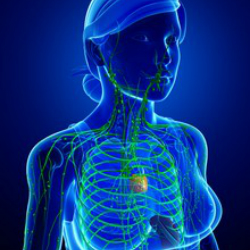Inhibitors of lymphatic vessel formation
Under physiological conditions, the lymphatic vascular system is implicated in the maintenance of interstitial fluid homeostasis, and in dietary fat and vitamin absorption. It is also required for the trafficking of immune cells and immune surveillance. Pathologies of the lymphatic vasculature such as lymphangiogenesis are indicative of chronic inflammation, graft rejection and metastatic dissemination. Defects in lymphatic function can lead to lymph and fat deposition in tissues, impaired immune responses and tissue swelling, known as lymphoedema. The search and identification of new lymphangiogenesis inhibitors and the understanding of their mechanisms of action, are currently a hot topic in the field of pharmacological research. The EU-funded TUMORLYMPHAINHIBIT (Identification, characterization and mechanisms of action of new tumor-associated lymphangiogenesis inhibitors) project discovered two new natural compounds that could work as lymphangiogenic inhibitors. Researchers investigated the mechanisms underlying the cellular and molecular mechanisms of action of these compounds. They found that they interfered with different crucial steps of the lymphatic vessel formation process. In particular, they worked on the vascular endothelial growth factor (VEGF-C/VEGFR-3) axis, the best known signalling pathway in lymphangiogenesis. The promising properties of these new drugs pave the way for future pre-clinical and clinical studies. Furthermore, the consortium developed new lymphangiogenic models to better understand how cancer cells spread through the lymphatic vasculature to colonise the draining lymph nodes. Overall, the findings of the study provide important mechanistic insight into the complex process of lymphangiogenesis. From a clinical perspective, this could translate into novel treatments that halt the formation of new vessels and/or cancer cell dissemination.







